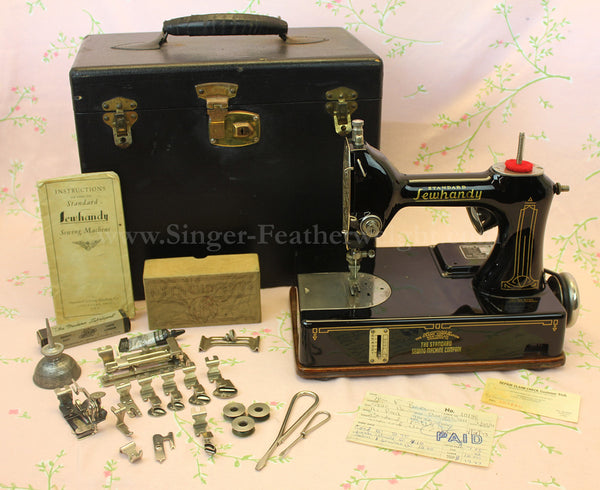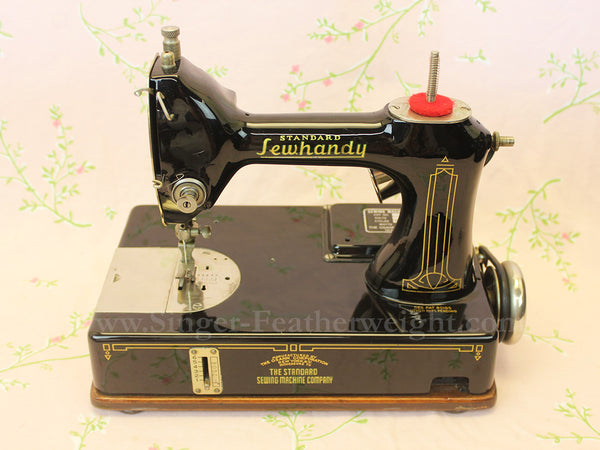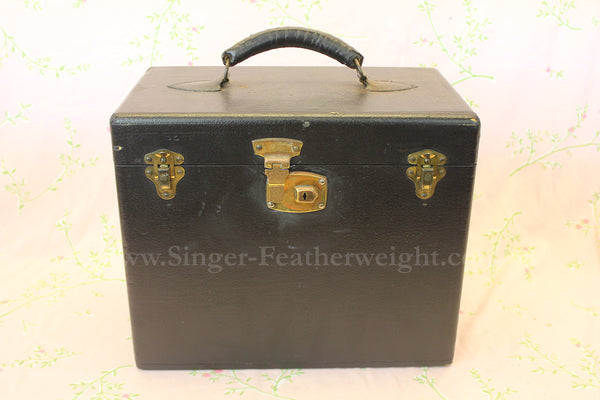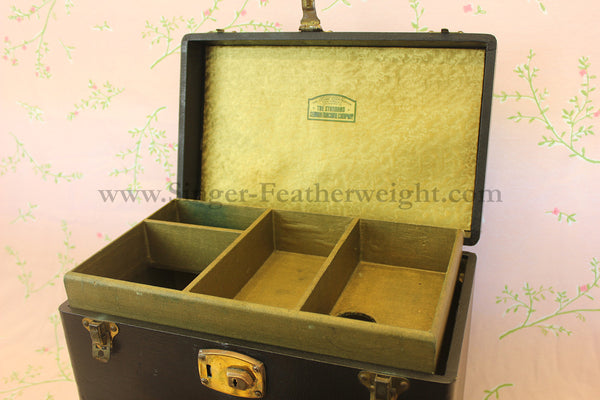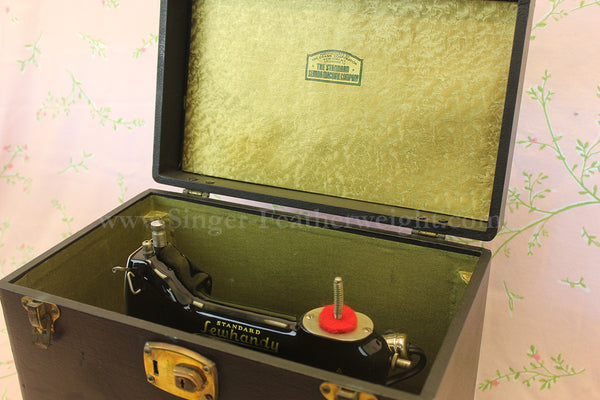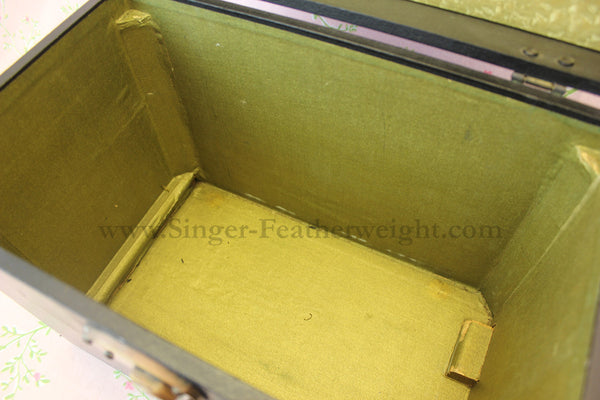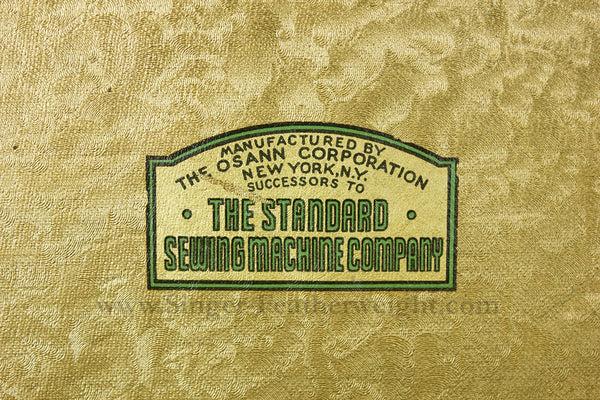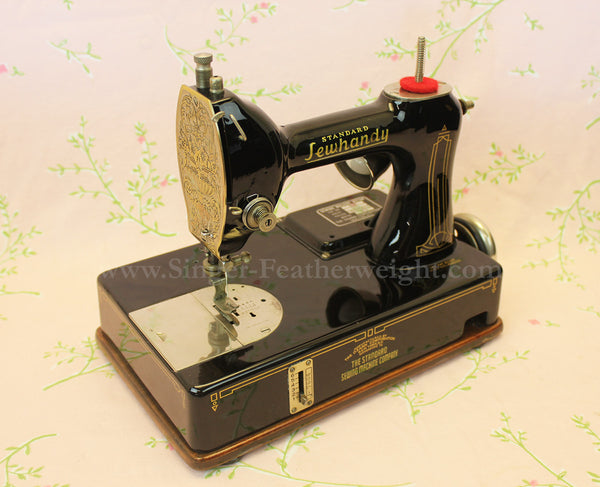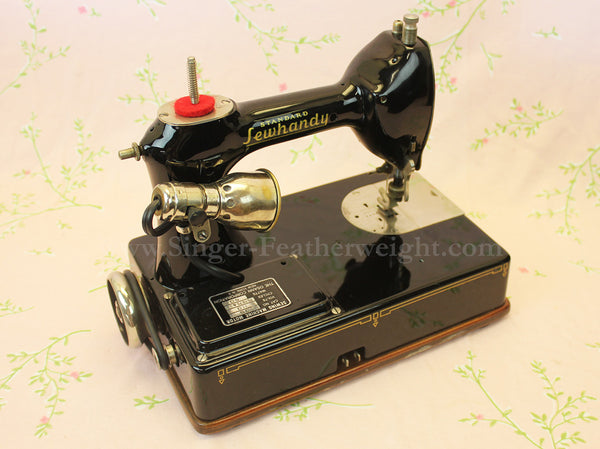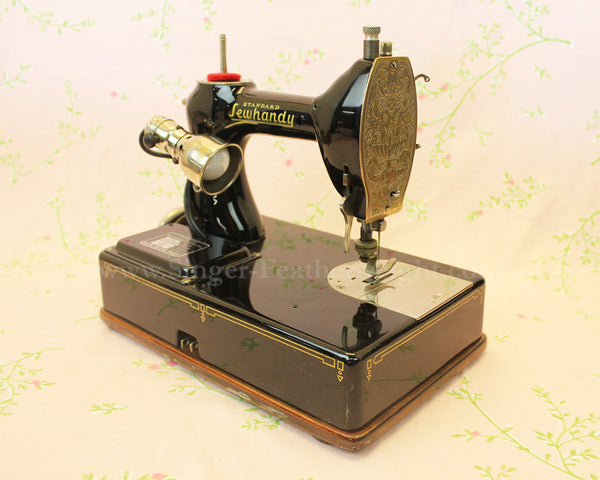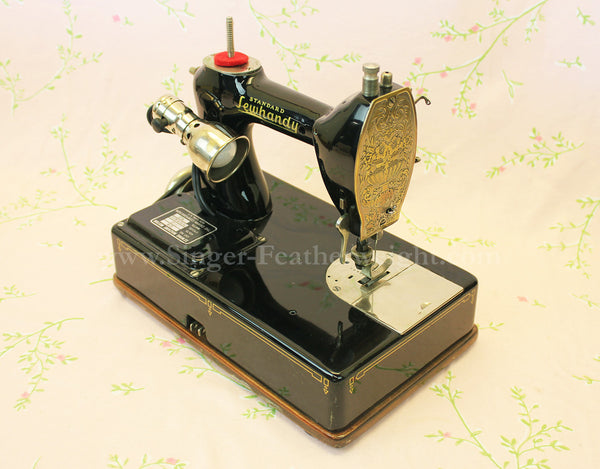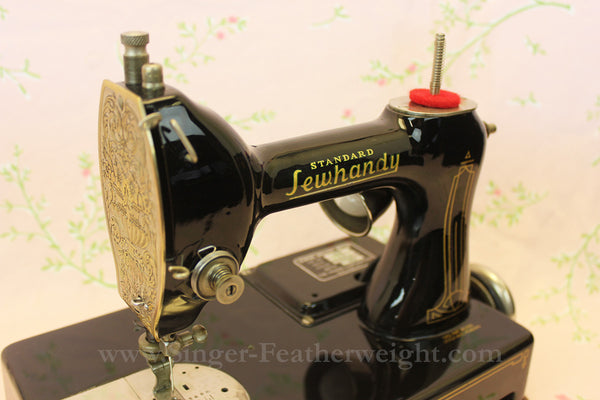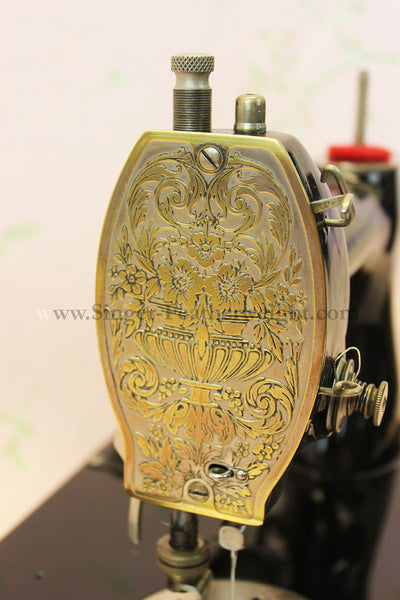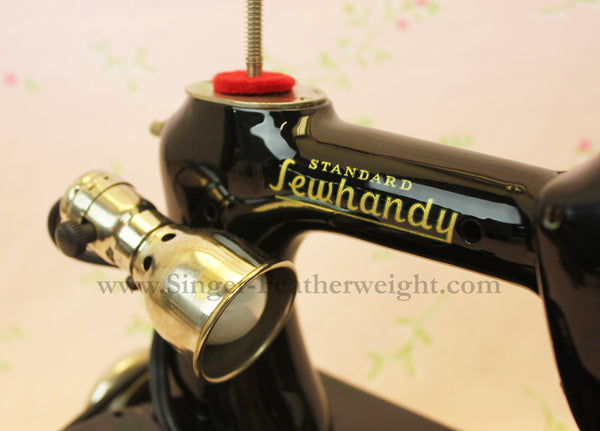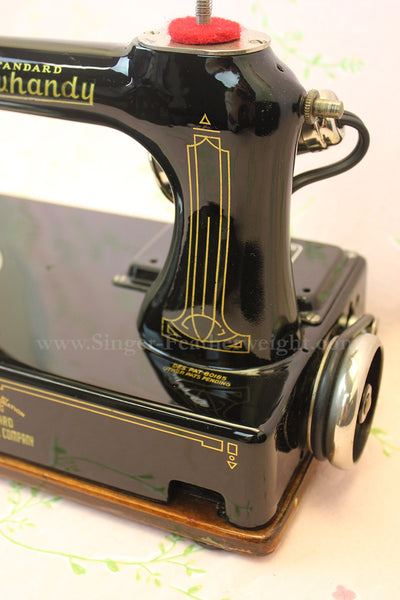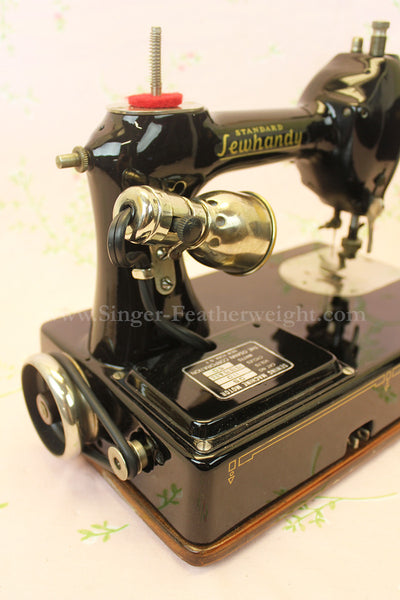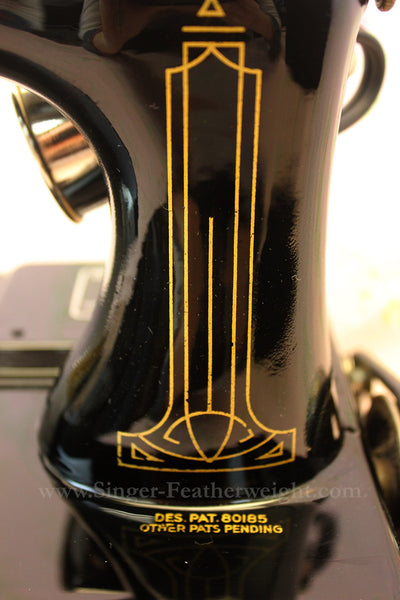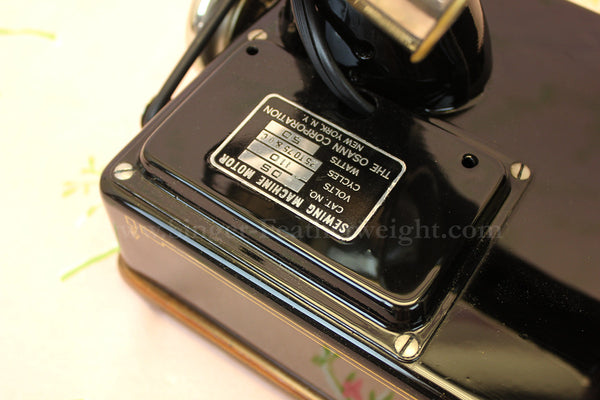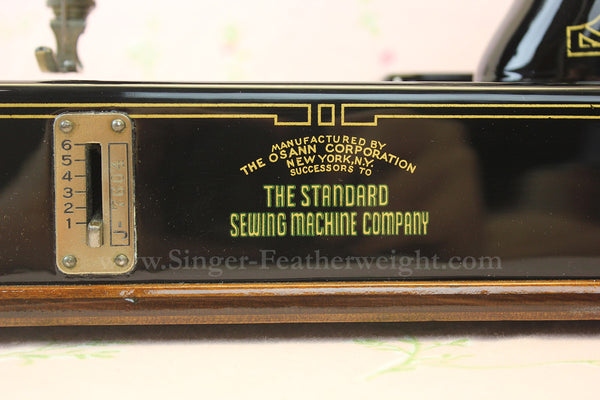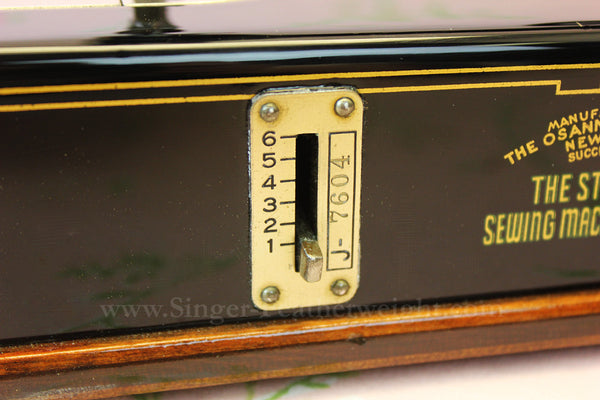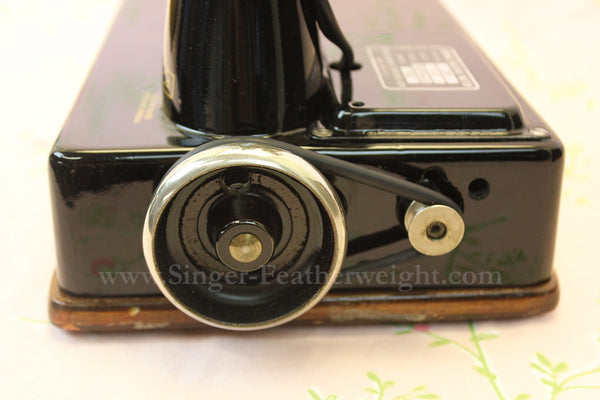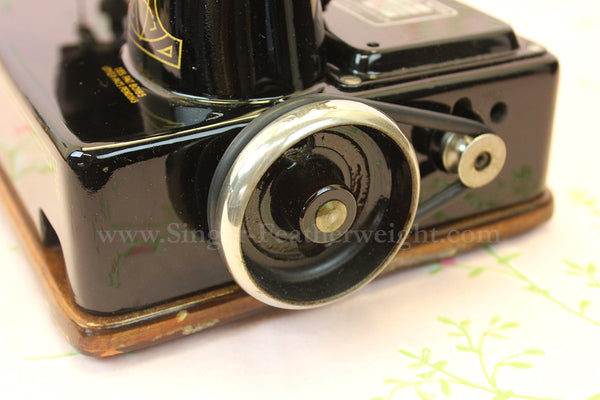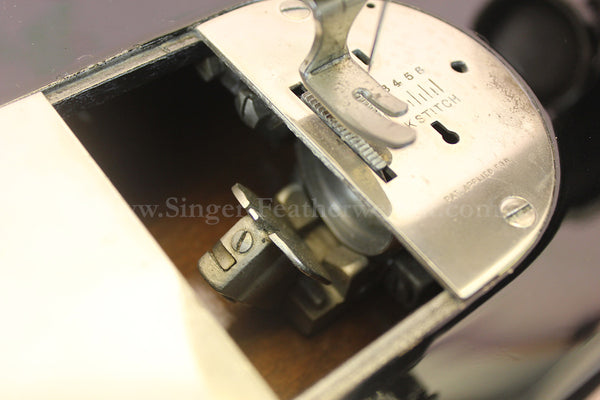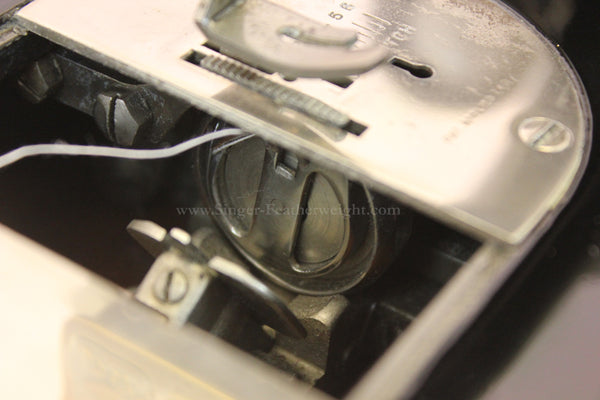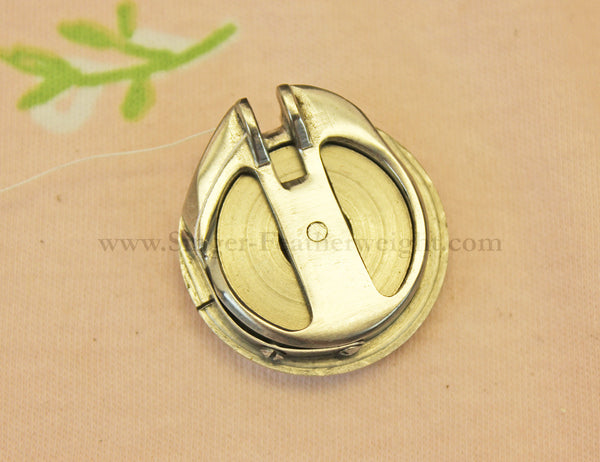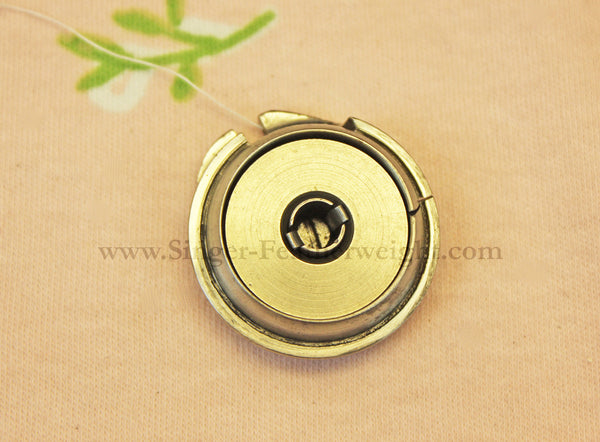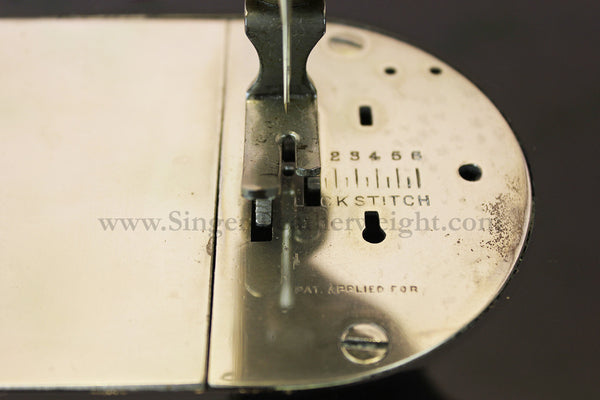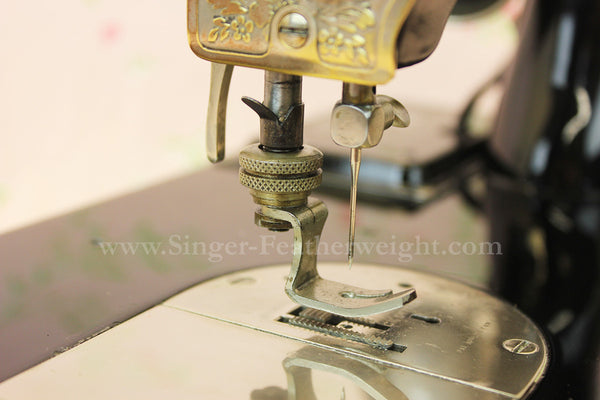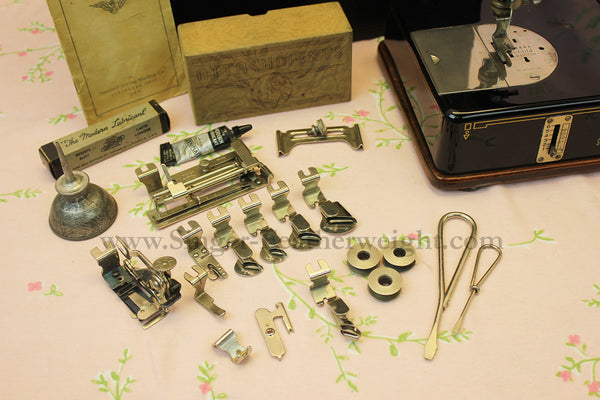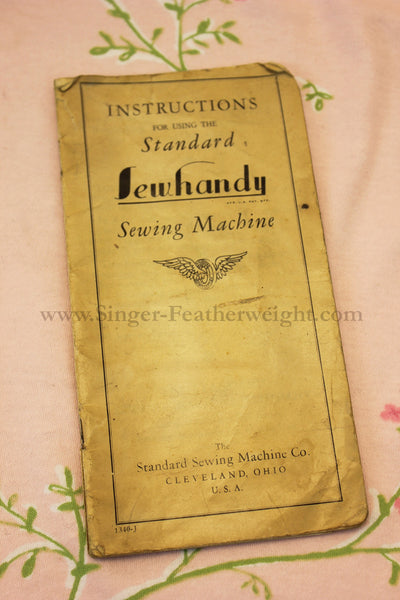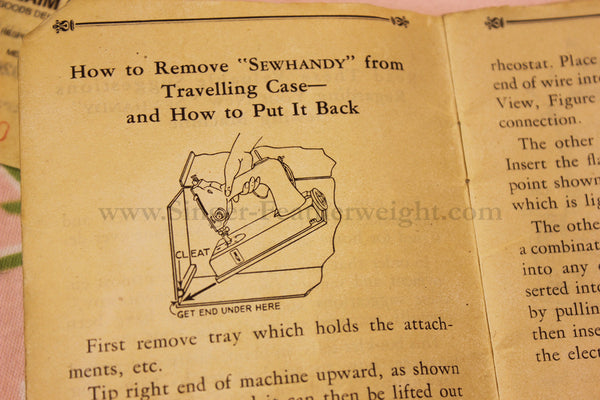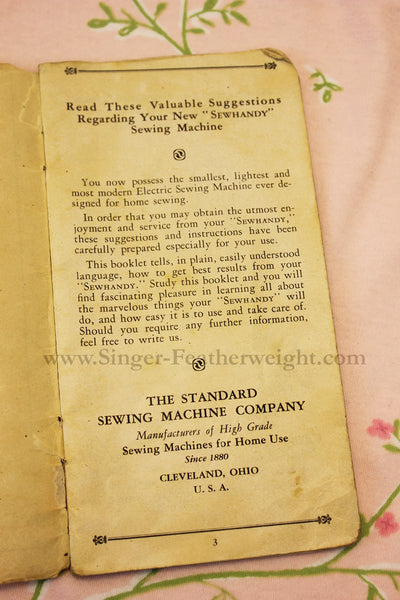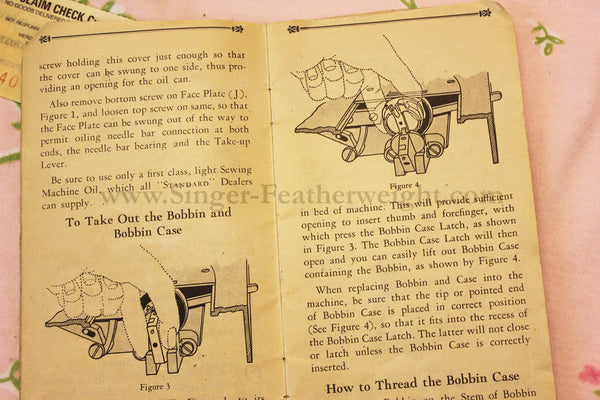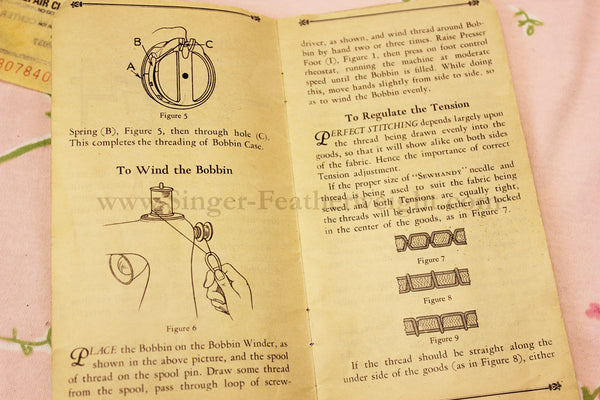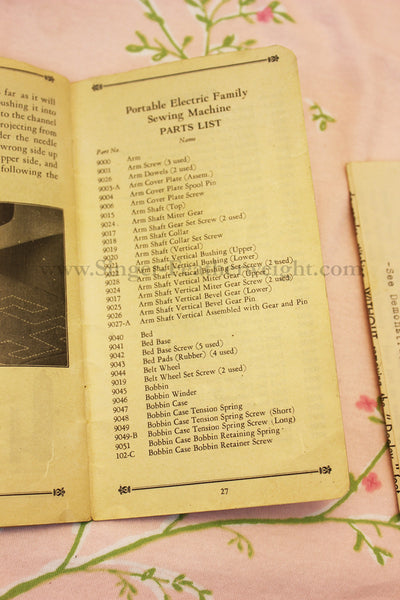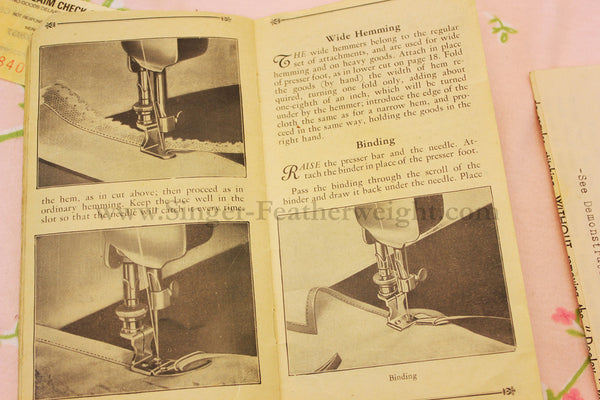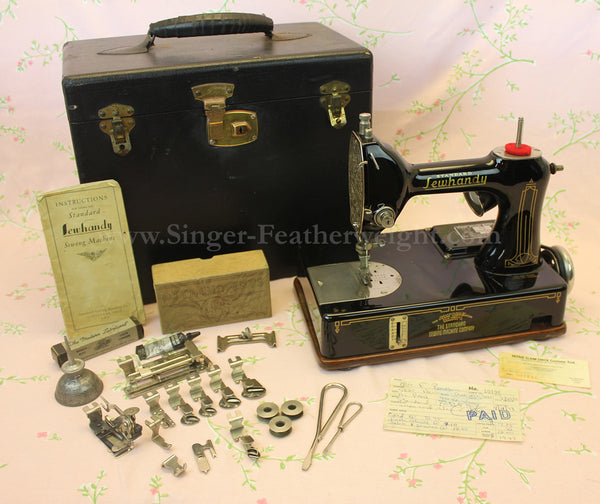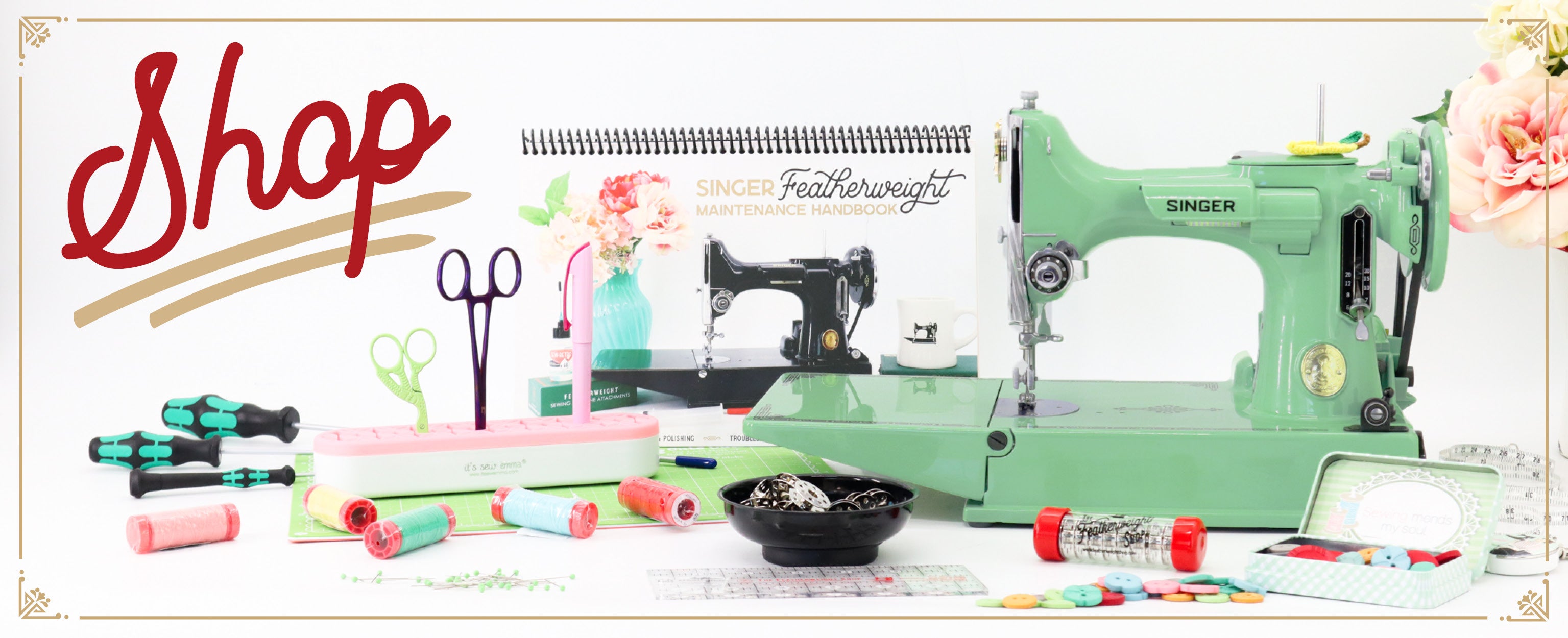Singer "Featherweight" history actually begins before Singer and before 1933 & 1934 (when Singer debuted their model 221 at the Chicago World's Fair). The "Featherweight" name and style really had its beginnings in 1928, when  the Standard Sewing Machine Company marketed the first "Featherweight" Sewing Machine. It seems they were still toying with design names, however, as it later became known as the "Sewhandy". The compact sewing machine came in an array of colors - "marine blue, larch green... ashes of roses and black....". Even though Standard eventually sold to the Osann Corporation, the "Sewhandy" name remained iconic when General Electric (G.E.) collaborated for the machine's use in their own market share. This lightweight machine offered portability plus convenience in a small carrying case and the Singer Manufacturing Company took note. A short time later, Singer Manufacturing acquired Osann and, thus, had the machine redesigned and the "Featherweight" name was reborn in 1933.
the Standard Sewing Machine Company marketed the first "Featherweight" Sewing Machine. It seems they were still toying with design names, however, as it later became known as the "Sewhandy". The compact sewing machine came in an array of colors - "marine blue, larch green... ashes of roses and black....". Even though Standard eventually sold to the Osann Corporation, the "Sewhandy" name remained iconic when General Electric (G.E.) collaborated for the machine's use in their own market share. This lightweight machine offered portability plus convenience in a small carrying case and the Singer Manufacturing Company took note. A short time later, Singer Manufacturing acquired Osann and, thus, had the machine redesigned and the "Featherweight" name was reborn in 1933.
************************************************************************
Every once in awhile, we will receive word from fellow Featherweight historians, JJ & Leo, as they might uncover something new and exciting about Featherweights or other distinctive characteristics related to the Singer Featherweight. Leo Kujat owns the website The Featherweight 221 Factory and used to restore/repaint Featherweights. He hasn't been able to update his website in several years, but he keeps in contact with a few collectors and curators by way of J.J.'s Featherweight historical emails. Recently, J.J. sent us several images of one of the earliest known "Featherweight" machines (not by Singer but by Standard) along with some of their historical notations about each photo. We were given permission to use these photos and information so we could share with you and keep the Featherweight history accurate and forthcoming. We hope you will enjoy these as you learn more, including what must have been the inspiration of our beloved Singer Featherweight.
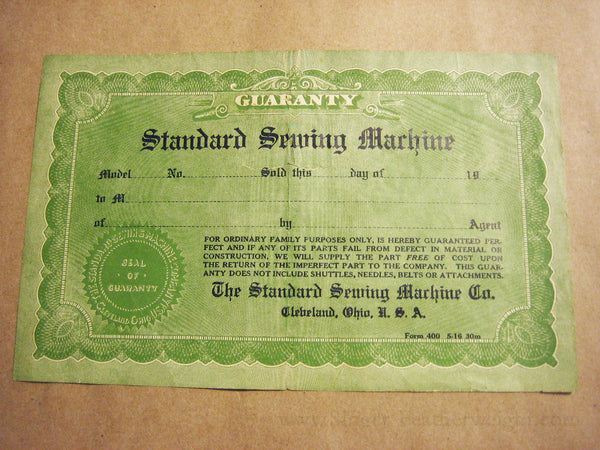
Early Guarantee ("Guaranty") for the STANDARD FEATHERWEIGHT Machine
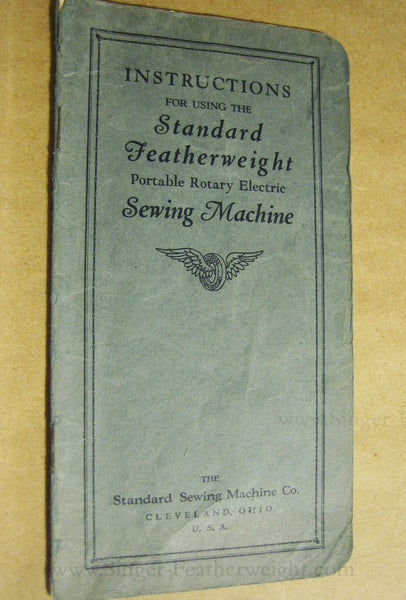
Sixteen-page instruction manual for the STANDARD FEATHERWEIGHT Machine from approximately March 1928.
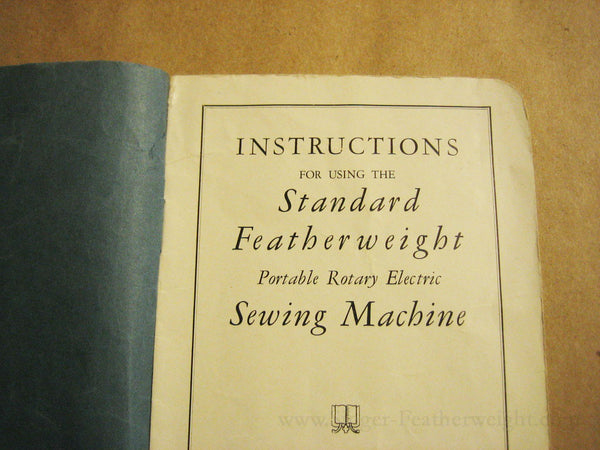
Line drawing of a STANDARD FEATHERWEIGHT below in the instruction manual. Note that there is no brand specification or writing on the line drawing of the machine.
It has been documented that the Standard Featherweight weighed 11 3/4 pounds and was made of aluminum, with the earliest style machine having a plain chrome faceplate.
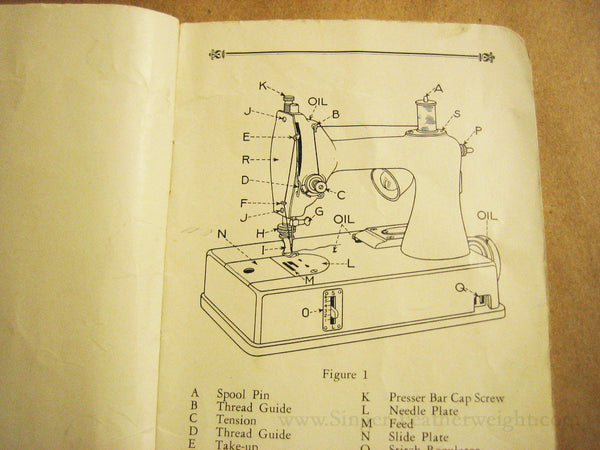
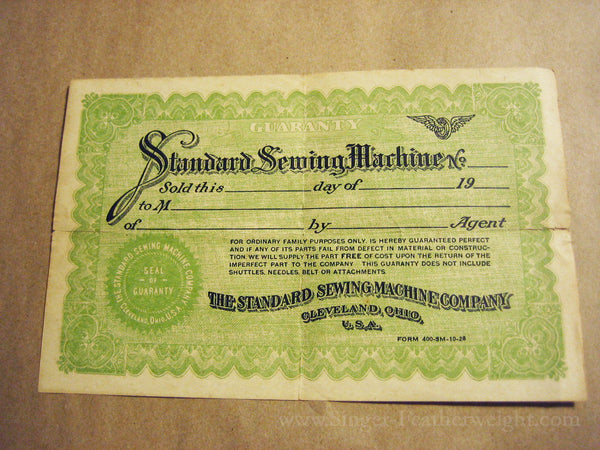
Guarantee for the STANDARD SEWHANDY. At some point the name changed from "Featherweight" to "Sewhandy", but it is unknown as to why.
Note the wings inside the 'O' (for Rotary) in the top right corner of the guarantee - you will see this again further down in the photographs.
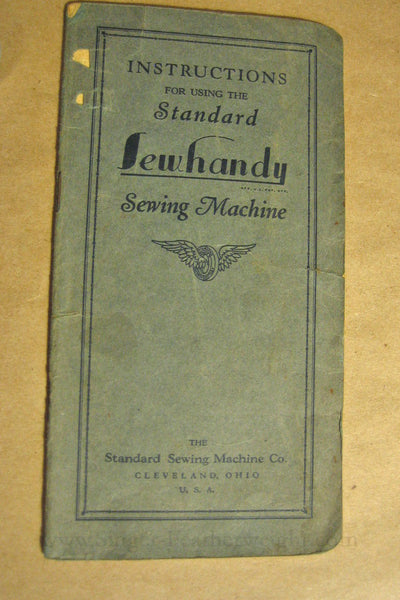
STANDARD SEWHANDY Instruction Manual
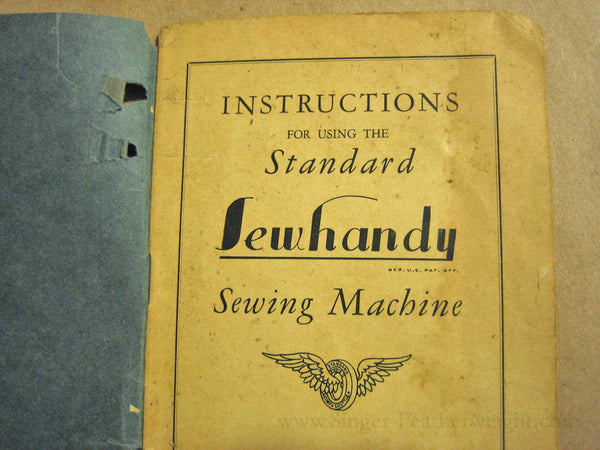
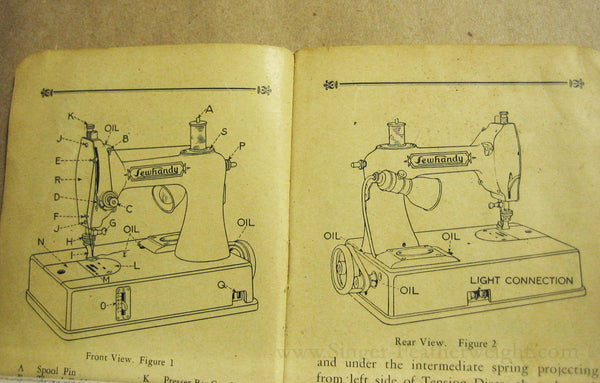
NOTE: The line drawings now contain the words SEWHANDY.
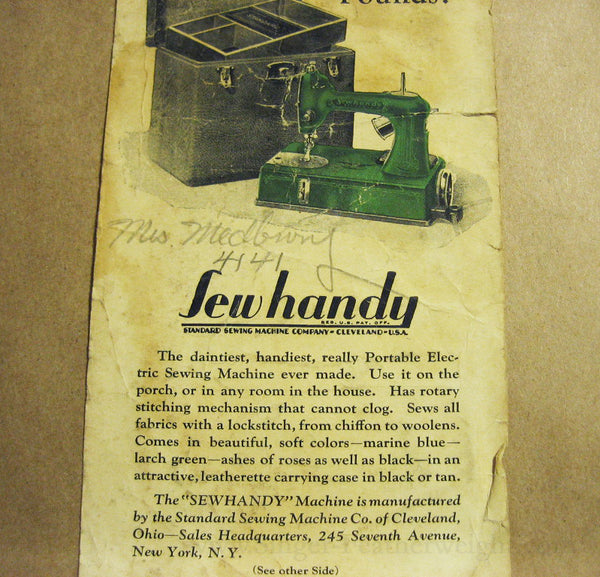
An early SEWHANDY Advertisement
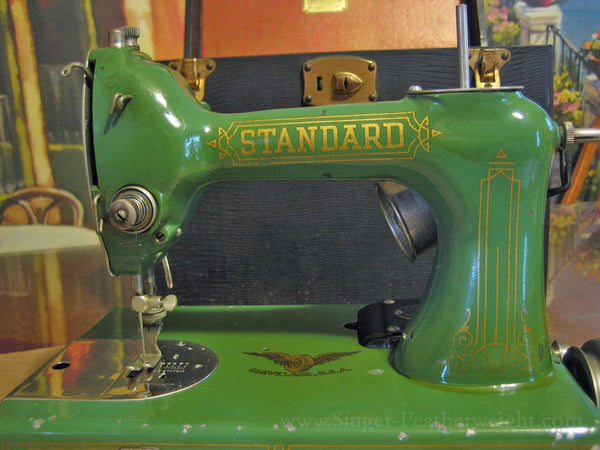
Few people have ever seen a STANDARD FEATHERWEIGHT Sewing Machine, or even know that they exist. This is an original STANDARD FEATHERWEIGHT!

The earliest Standard Featherweight had a polished chrome face plate compared to the scrolled plate of the later Sewhandy (next photo).
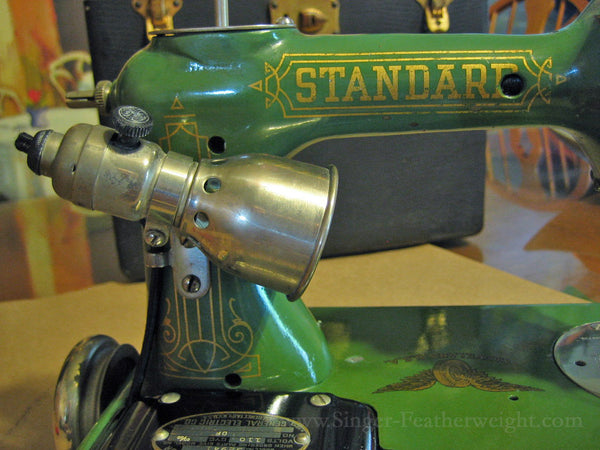
Early G.E. chrome light, with GE markings on the ON/OFF switch
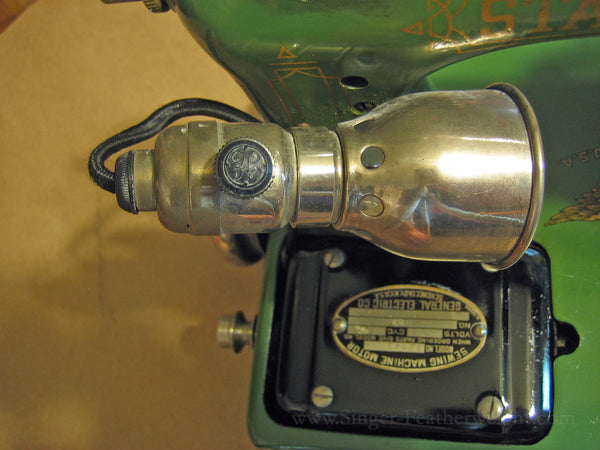
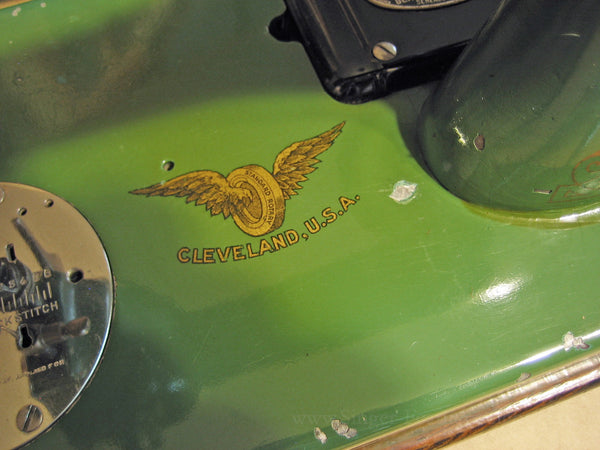
This is the only bed design used on the STANDARD FEATHERWEIGHT. Remember the wings and the 'O' on the Guarantee Certificate? Here they are in the decal design on the bed of the Standard Featherweight. You can read the words 'Standard Rotary' in the ring.
The bed was made of aluminum -- you can tell by holding a magnet to the surface (it will not magnetize to aluminum).
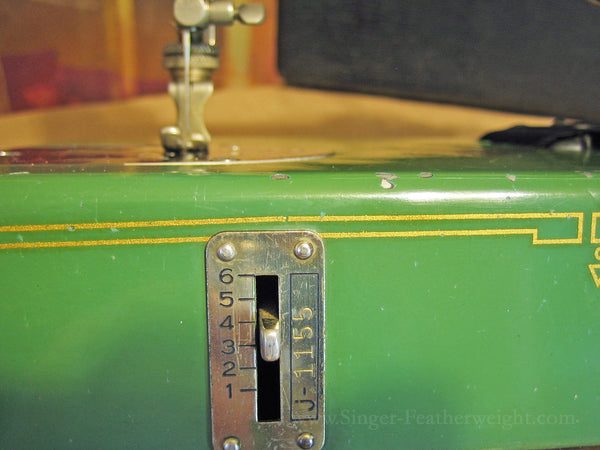
Serial number is very low in sequence at J-1155. JJ & Leo have J-1335 recorded the highest they've seen prior to this one.
Now, let's have a look at a beautiful little Standard Sewhandy - in black! A few weeks ago while visiting with Dave & Sharon McCallum, we were blessed to bring home this restored Sewhandy, refinished by Dave himself. It is truly gorgeous and we couldn't wait to photograph it so you could see another precursor to the Singer Featherweight we are so familiar with today.
This was the machine, outfitted with several attachments, bobbins, oiler, lubricant, even a receipt or two for service from year's past.
This black Sewhandy was made by the Standard Sewing Machine Company, which was owned by Osann Corporation at the time. Before we look further at the machine, however, we want you to note the case and how closely it resembles those early Singer Featherweight cases depicted on the
Singer Featherweight Timeline.
Notice the top tray with the hole cut out for the spool pin and compartments for attachments and accessories.
See the corner blocks? Those are the corner supports for the top tray - just like those of the Singer Featherweight early cases.
The faceplate is scrolled and just beautiful with etched flowers in a large vase.
Art deco gold detailing....
The motor is encapsulated inside the machine, with the receptacle for the cord at the back.
What really catches our eye in this photograph (besides the Osann Corporation) is the lovely wooden base. Isn't it pretty?!
Stitch length regulator with the serial number J-7604 to the right side.
Handwheel on the base of the machine
Bobbin case access -- you have to squeeze the lever before it will pop open so you can insert the bobbin case. I will forewarn you - the stitch formation and quality of the stitch does not compare at all with the Singer Featherweight. Singer really did have better engineering.
Bobbin case inserted...
Original vintage bobbin case for the Standard Sewhandy sewing machine.
Attachments are the rotary style and will not work on any Singer sewing machine. They hook over from the top (versus the left side) and the built in screw tightens over the foot clamp.
We hope you enjoyed this small history lesson -- let us know what you think in the comments below!
 the Standard Sewing Machine Company marketed the first "Featherweight" Sewing Machine. It seems they were still toying with design names, however, as it later became known as the "Sewhandy". The compact sewing machine came in an array of colors - "marine blue, larch green... ashes of roses and black....". Even though Standard eventually sold to the Osann Corporation, the "Sewhandy" name remained iconic when General Electric (G.E.) collaborated for the machine's use in their own market share. This lightweight machine offered portability plus convenience in a small carrying case and the Singer Manufacturing Company took note. A short time later, Singer Manufacturing acquired Osann and, thus, had the machine redesigned and the "Featherweight" name was reborn in 1933.
the Standard Sewing Machine Company marketed the first "Featherweight" Sewing Machine. It seems they were still toying with design names, however, as it later became known as the "Sewhandy". The compact sewing machine came in an array of colors - "marine blue, larch green... ashes of roses and black....". Even though Standard eventually sold to the Osann Corporation, the "Sewhandy" name remained iconic when General Electric (G.E.) collaborated for the machine's use in their own market share. This lightweight machine offered portability plus convenience in a small carrying case and the Singer Manufacturing Company took note. A short time later, Singer Manufacturing acquired Osann and, thus, had the machine redesigned and the "Featherweight" name was reborn in 1933.















